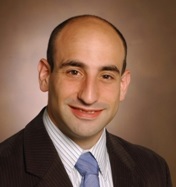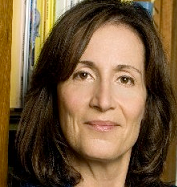2010 Women's Institute for Summer Enrichment
PROGRAM OVERVIEW
WISE is a one-week residential summer program at a TRUST campus that brings together graduate students, post-doctoral fellows, and professors from all disciplines that are interested in Ubiquitous Secure Technology and the social, political, and economical ramifications that are associated with this technology. Thought leaders from academia, industry, and government come to WISE to teach power courses in several disciplines, including computer science, engineering, economics, law, and public policy. The one-week program includes rigorous classes and allows participants opportunities for career development and to network with their peers.
The 2010 WISE Institute was held July 21-24, 2010 on the Vanderbilt University campus in Nashville, TN. A copy of the agenda can be found here.
SPEAKERS 2010

Rebecca Gurley Bace
Infidel, Inc.
Rebecca Gurley Bace is an internationally recognized expert in network security and intrusion detection. She is currently a VP within the Security Practice for In-Q-Tel, the investment arm of the U.S. Intelligence Community. At In-Q-Tel, Ms. Bace is a member of a team of security thought leaders and investment professionals who leverage commercial security product capabilities in order to meet mission needs in the area. Ms. Bace's security experience includes over a decade of government service in the National Security Agency, where she led the research program that produced intrusion detection technology and successfully transferred it to the commercial market, experience as deputy security officer for the Los Alamos National Laboratory, and a decade leading the security investments team of a top tier Silicon Valley venture capital firm. She has written two well-received books, a federal standard for intrusion detection, and the chapters on intrusion detection and vulnerability management in the practice manual for computer security professionals.

Sabrina Coleman
Mahoghany Coaching & Development
Sabrina Coleman, owner of Mahoghany Coaching & Development is a Women's Leadership and Personal Coach who has twenty years of comprehensive combined experience working in government, corporate and non-profit sectors in roles that include leadership, organizational development, leadership/professional development, change management, group facilitation, coaching, and project management. The last eleven years have primarily been focused on working within the biotech/pharmaceutical industry. Because of the various roles she has played, she has been in a unique position to partner with organizational leaders at all levels transcending functional boundaries to deliver strategically-aligned results. This practical, hands-on experience as a coach, consultant and leader; has provided her with an insight that is beneficial to the development and support of leaders and individuals at every level. She is also a member of the Adjunct Faculty of Sonoma State University with the Psychology/OD Program.
Personal Power to Organizational Power: Building Relationships That Take Us To The Next Level

Julie Earp
North Carolina State University
Julie Earp is an Associate Professor of Information Technology in the Business Management Department of the College of Management at NCSU. She is heavily involved with the The Privacy Place, the Institute for Advanced Analytics and various IT policy initiatives both on and off campus. Her research focuses on Internet security and privacy issues from several different perspectives, including data management, consumer values, policy, economics and law. The ultimate goal of her work is to demonstrate the need for supporting the early stages of the software lifecycle, specifically addressing the need for novel approaches to security and privacy coverage in web-based systems. Her research has gained international recognition through best paper awards at international conferences and workshops, and through publication in outlets such as IEEE Transactions on Engineering Management, IEEE Security and Privacy and Communications of the ACM.
The Significance and Evolution of End User Privacy
Privacy Policy: Alignment with Systems, Legislation and People
Developing Diverse Departments (3-D) at NC State

Dorothy Glancy
Santa Clara University School of Law
Dorothy J. Glancy is Professor of Law at Santa Clara University School of Law. A graduate of Wellesley College (B.A.) and Harvard Law School (J.D.), she was also a postgraduate Fellow in Law and the Humanities at Harvard University. Professor Glancy concentrates on legal issues related to privacy, intellectual property, land use and technology. She is admitted to the bars of both California and the District of Columbia and practiced law in Washington, D.C. She served as counsel to the United States Senate Judiciary Subcommittee on Constitutional Rights (assisting Senator Ervin in the Watergate investigations) and in the Office of General Counsel of the United States Department of Agriculture. Professor Glancy is a Research Fellow of the Gruter Institute for Law and Behavioral Research and works with Santa Clara University's Center for Science, Technology and Society on issues related to technology and law. She is a member of the legal committee of the California Privacy and Security Advisory Board that advises the California Office of Health Information Integrity. She chairs the e-Practices Subcommittee of the Court Technology Advisory Committee of the Judicial Council of California.
Privacy Breach Response
Privacy Protection in Traffic Surveillance Systems

Christopher Hoofnagle
University of California, Berkeley
Chris Jay Hoofnagle is Director of the Berkeley Center for Law & Technology's information privacy programs and senior fellow to the Samuelson Law, Technology & Public Policy Clinic. He is an expert in information privacy law. Hoofnagle's recent work focuses on promoting competition among financial institutions to prevent identity theft. In his paper, "Identity Theft: Making the Unknown Knowns Known," he discusses the problem of "synthetic identity theft," a form of crime where an impostor fabricates personal information and yet still can obtain credit accounts. Hoofnagle argues that the rise of this form of fraud demonstrates a fundamental failure in banks' anti-fraud gatekeeper function, and proposes market reforms for reducing identity theft.
Hacking the Law for Researchers

Brad Malin
Vanderbilt University
Brad Malin is an Assistant Professor of Biomedical Informatics in the School of Medicine, an Assistant Professor of Computer Science in the School of Engineering at Vanderbilt University, and is the Director of the Vanderbilt Health Information Privacy Laboratory. Among his sponsored research, he directs a data privacy research and consultation team for the Electronic Medical Records and Genomics (eMERGE) project, a consortium sponsored by the National Human Genome Research Institute. He has edited several volumes for Springer Lecture Notes in Computer Science, a special issue for the journal Data and Knowledge Engineering, and is currently on the editorial board of the journal Transactions on Data Privacy. He received a bachelor's in biology (2000), master's in machine learning (2002), master's in public policy & management (2003), and a doctorate in computer science (2006), all from Carnegie Mellon University. Further details can be found at http://www.hiplab.org/people/malin.
Building Systems to Support Health Information Privacy

Deborah Peel
Physician, psychoanalyst
Deborah Peel, MD is a practicing psychoanalyst and American health privacy expert. She founded Patient Privacy Rights in 2004, now with 10,000 members. Patient Privacy Rights is the leading US consumer watchdog for health privacy. She fights to restore patients' rights to control their health information, from prescriptions to DNA, in electronic systems to prevent generations of discrimination in jobs and future opportunities. Dr. Peel leads the bipartisan Coalition for Patient Privacy, representing 10 million Americans. The Coalition's efforts resulted in strong new privacy requirements for electronic health records systems built with the billions in stimulus funds: a ban on the sale of personal health information without consent, audit trails, segmentation, breach notice, encryption, and the right to prevent disclosure of health records for payment and healthcare operations if treatment is paid for out-of-pocket. She has been elected one of ModernHealthcare's "100 Most Powerful in Healthcare" since 2007.
Healthcare, Health IT, and Health Information Exchange what do patients expect?

Liza Weavind
Vanderbilt University Medical Center
Dr. Liza Weavind's academic interests are focused on educational models for critical care practitioners and trainees, patient safety initiatives, and the utilization of telemedicine and technology to improve and standardize ICU care. Dr. Weavind's work on sepsis management modules and algorithms in surgical patients, is directed at providing expert, real-time feedback to physicians treating septic patients.
Towards Systematic Model-Based Development of Patient Management Systems

Yuan Xue
Vanderbilt University
Yuan Xue received her B.S. in Computer Science from Harbin Institute of Technology, China in 1998 and her M.S. and Ph.D. in Computer Science from the University of Illinois at Urbana-Champaign in 2002, and 2005. Currently she is an assistant professor at the Department of Electrical Engineering and Computer Science of Vanderbilt University. Her research area includes networking and distributed systems with a particular interest in wireless network performance optimization, cyber-physical system integration, security and privacy protection of medical data and system.
Assessing Security of Cyber-Physical Systems



